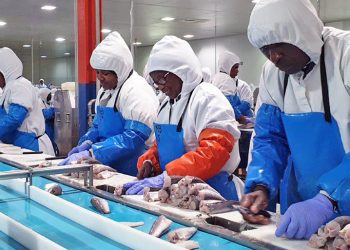
The Economic Association of Namibia (EAN) has called for urgent export diversification in response to the recent imposition of a 21% tariff on Namibian goods entering the United States, warning that the levy could significantly impact key economic sectors.
The tariff, which stems from a decision made under President Donald Trump’s administration, targets Namibian exports such as grapes, fish, uranium and diamonds—industries that play a vital role in the country’s economy and employment levels.
EAN Chief Executive Officer Cons Karamata stressed that while exports to the US accounted for just 3% of Namibia’s total export value in 2024, the sectors affected by the tariff are highly sensitive and central to national economic performance.
“Namibia must urgently accelerate efforts to diversify its export markets,†Karamata said.
“Greater emphasis should be placed on strengthening trade with the European Union, Russia, China, and regional partners under the African Continental Free Trade Area (AfCFTA).â€
He noted that over-reliance on a limited number of markets leaves the country vulnerable to external shocks, and that the US tariffs highlight the need to build resilience through a broader, more balanced trade portfolio.
Karamata also called for Namibia to invest in value-added processing to enhance the competitiveness of its exports.
“Processing raw materials locally,such as beef packaging, fish canning, and uranium refinement,would not only create jobs but also help Namibia command better prices in global markets,†he said.
In addition to market diversification, the EAN is recommending targeted support for affected industries, including temporary tax relief or subsidies to cushion the blow of reduced export revenues.
“These tariffs threaten to reduce demand for Namibian products in the US and could have ripple effects across the economy,†Karamata warned.
“We need immediate measures to protect the livelihoods of those who depend on these sectors.â€
He further emphasised the importance of domestic and regional trade development.
“We must look inward by promoting local consumption of Namibian products and deepening trade relationships within Africa. Strengthening regional ties will help us build a more self-reliant and stable economy,†Karamata said.
While acknowledging the challenges posed by the US tariff, Karamata said the situation presents an opportunity for Namibia to rethink and realign its trade strategy.
“This is a critical moment for Namibia to reassess its economic model. By pursuing diversification, value addition, and regional integration, we can emerge stronger and better prepared for future global disruptions,†he said.










